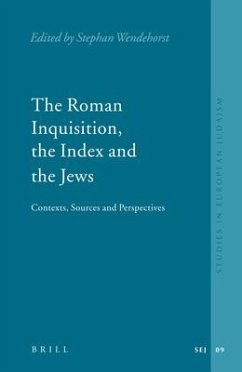In comparison to the Iberian Inquisitionslittle research has been done on the attitude of the Roman and Universal Inquisition to the Jews. The present volume deals with the relations between the Catholic Church, Jews and Judaism and the potential of the now accessible sources in the archive of the Congregation for the Doctrine of the Faith in Rome for throwing new light on this intricate relationship. It starts with contributions by Kenneth Stow, Piet van Boxel, Hanna W?grzynek, Amnon Raz-Krakotzkin, Eleazar Gutwirth, Michael Studemund-Halivy and Sandra Neves Silva on key areas of the encounter between the Roman Church and the Jews such as papal policy, censorship and the Converso milieu. It moves on to presentations ofarchival material from the Congregations of the Roman Inquisition and of the Index by Claus Arnold, Antje Brdcker and John Tedeschi and concludes with sketches of ongoing and prospective research projects by Stephan Wendehorst, Ariella Lang and Hubert Wolf.
Hinweis: Dieser Artikel kann nur an eine deutsche Lieferadresse ausgeliefert werden.
Hinweis: Dieser Artikel kann nur an eine deutsche Lieferadresse ausgeliefert werden.








